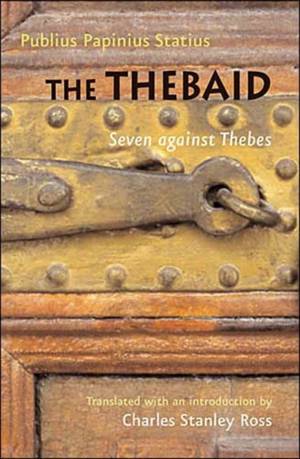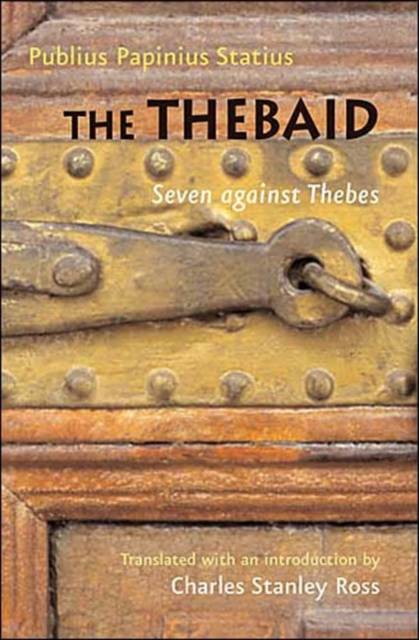
- Retrait gratuit dans votre magasin Club
- 7.000.000 titres dans notre catalogue
- Payer en toute sécurité
- Toujours un magasin près de chez vous
- Retrait gratuit dans votre magasin Club
- 7.000.0000 titres dans notre catalogue
- Payer en toute sécurité
- Toujours un magasin près de chez vous
Description
A classical epic of fratricide and war, the Thebaid retells the legendary conflict between the sons of Oedipus--Polynices and Eteocles--for control of the city of Thebes. The Latin poet Statius reworks a familiar story from Greek myth, dramatized long before by Aeschylus in his tragedy Seven against Thebes. Statius chose his subject well: the Rome of his day, ruled by the emperor Domitian, was not too distant from the civil wars that had threatened the survival of the empire. Published in 92 A.D., the Thebaid was an immediate success, and its fame grew in succeeding centuries. It reached its peak of popularity in the later Middle Ages and Renaissance, influencing Dante, Chaucer, and perhaps Shakespeare. In recent times, however, it has received perhaps less attention than it deserves, in large part because there has been no accessible, dynamic translation of the work into English.
Charles Stanley Ross offers a compelling version of the Thebaid rendered into forceful, modern English. Casting Statius's Latin hexameter into a lively iambic pentameter more natural to the modern ear, Ross frees the work from the archaic formality that has marred previous translations. His translation reinvigorates the Thebaid as a whole: its meditative first half and its violent second half; its intimate portrayal of defeat and retribution, and the need to seek justice at any cost. In a wide-ranging introduction, Ross provides an overview of the poem: its composition, reception and legacy; its major themes and literary influences; and its place in Statius' life. And in a helpful series of notes, he offers background information on the major characters and incidents.
Spécifications
Parties prenantes
- Auteur(s) :
- Traducteur(s):
- Editeur:
Contenu
- Nombre de pages :
- 432
- Langue:
- Anglais
- Collection :
Caractéristiques
- EAN:
- 9780801869082
- Date de parution :
- 22-12-04
- Format:
- Livre relié
- Format numérique:
- Genaaid
- Dimensions :
- 163 mm x 233 mm
- Poids :
- 716 g

Les avis
Nous publions uniquement les avis qui respectent les conditions requises. Consultez nos conditions pour les avis.






